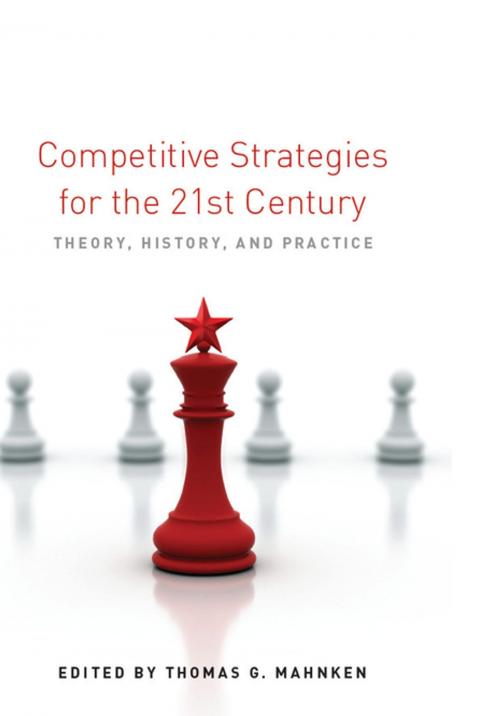Competitive Strategies for the 21st Century
Theory, History, and Practice
Nonfiction, Social & Cultural Studies, Political Science, International, International Security| Author: | ISBN: | 9780804783187 | |
| Publisher: | Stanford University Press | Publication: | August 8, 2012 |
| Imprint: | Stanford Security Studies | Language: | English |
| Author: | |
| ISBN: | 9780804783187 |
| Publisher: | Stanford University Press |
| Publication: | August 8, 2012 |
| Imprint: | Stanford Security Studies |
| Language: | English |
The U.S. today faces the most complex and challenging security environment in recent memory— even as it deals with growing constraints on its ability to respond to threats. Its most consequential challenge is the rise of China, which increasingly has the capability to deny the U.S. access to areas of vital national interest and to undermine alliances that have underpinned regional stability for over half a century. Thus, the time is right for the U.S. to adopt a long-term strategy for dealing with China; one that includes but is not limited to military means, and that fully includes U.S. allies in the region. This book uses the theory and practice of peacetime great-power strategic competition to derive recommendations for just such a strategy. After examining the theory of peacetime strategic competition, it assesses the U.S.-China military balance in depth, considers the role of America's allies in the region, and explores strategies that the U.S could adopt to improve its strategic position relative to China over the long term.
The U.S. today faces the most complex and challenging security environment in recent memory— even as it deals with growing constraints on its ability to respond to threats. Its most consequential challenge is the rise of China, which increasingly has the capability to deny the U.S. access to areas of vital national interest and to undermine alliances that have underpinned regional stability for over half a century. Thus, the time is right for the U.S. to adopt a long-term strategy for dealing with China; one that includes but is not limited to military means, and that fully includes U.S. allies in the region. This book uses the theory and practice of peacetime great-power strategic competition to derive recommendations for just such a strategy. After examining the theory of peacetime strategic competition, it assesses the U.S.-China military balance in depth, considers the role of America's allies in the region, and explores strategies that the U.S could adopt to improve its strategic position relative to China over the long term.















